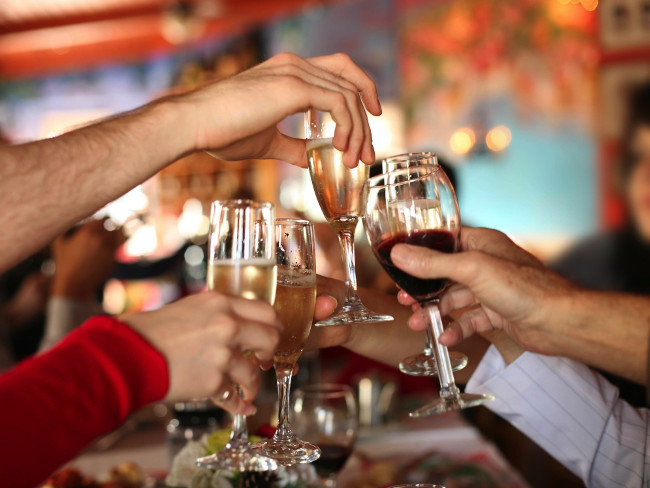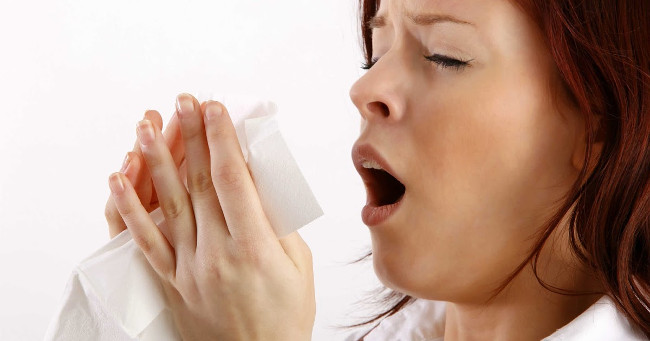Customary practices of New Year's Day of the countries
The upcoming Lunar New Year, each country will have a different way of celebrating Tet. Let's see what unique customs are on the New Year in different countries.
1. Japan
Due to the influence of Western culture, Japanese people have long not welcomed the Lunar New Year as some other Asian countries. In Japanese spirituality, the Lunar New Year is considered the main holiday. In the morning of the first day of the New Year, every member of the Japanese family together poured into the street to welcome the first dawn of the new year. After that, everyone invited each other to the temple to worship Buddha, pray or go to relatives and friends to wish each other a new year. On this day, families celebrate the New Year (Oshogatsu). On the tray of the Japanese people, the dishes are extremely rich, meticulously decorated, beautiful.
 Osechi - Japanese New Year's food after offering New Year's gods.
Osechi - Japanese New Year's food after offering New Year's gods.
The first is New Year's Eve (otoso) that exorcises the air in that year and to prolong the life. Next is the dish on Tet (osechi) after offering the New Year Spirit. People eat and drink and give each other the best wishes. The first three days from January 1 to January 3 are considered the 3 most sacred and special days of the New Year. In these 3 days, Japanese people have a vegetarian diet to pay respect to the Buddha, ancestors, pray for a new year of great benefit. In addition, like Vietnamese New Year, Japanese people still keep the custom of celebrating the age of children or giving gifts between family members or family members, friends after the New Year's Eve celebration. It is noteworthy that according to customary traditions and traditions, gift giving or celebrating Tet holidays in Japan are not "burdened" by material values, but are mainly spiritual and emotional. ethical behavior .
2. France
 The French started drinking drunk from New Year's Eve until January 3 to finish.
The French started drinking drunk from New Year's Eve until January 3 to finish.
It is said: " French people use wine to welcome the new year ". Why do you say that? Because the French started drinking alcohol from the New Year's Eve until January 3 to finish. The French conceived, on the day of Tet, they had to drink all the alcohol they had, to do so, in the new year, there would be thousands of things as expected. If drinking still exists, there will be many bad luck in the new year. In addition, during the first day of the New Year, French people often go out together to watch the wind direction to guess the time of year. If the South wind blows, signaling a favorable rainy year, this will be a peaceful year and the weather is hot. If the West wind blows, it will be a lucky year for fishing and dairy farmers. If the East wind blows, fruit trees will be bumper, houses are warm. If the North wind blows is not a good omen, this will be a year of crop failure.
3. English
One day before the Lunar New Year, the family were busy buying wine filled with bottles and jars in the house, the kitchen contained lots of meat. The British believe that if the wine and meat are not abundant, the new year will face difficulties and poverty. In addition, the UK still circulated the custom of " taking the country early in the new year ". Everyone is fighting for water to be the first to scoop the first water in the first hours of the new year. According to the British conception, the first scooped-up scout will be lucky throughout the year. On New Year's Eve, the British often bring sweet cakes and wine to visit relatives and friends, however, the guests will not knock on the door but go straight inside. The British said that after midnight bell rang to the new year, the first person to set foot in the house was a black-haired man or a happy, happy and rich person who would bring to the landlord. a new year of great sand. If the first person is a woman with platinum blonde hair or a sad, miserable, unhappy person, this signals the landlord will have a year of misfortune, difficulties and disasters. When you come to be a guest at the British house on New Year's Eve, before opening the story, the first thing you need to do is go to the fireplace with coal burning. This is a work showing the blessing to the landlord with the meaning of " opening the great sand ".
4. Scotland
The night before New Year's Day, every Scottish family spread a little gold in front of their door. Although there were no people watching, both thieves and beggars when they saw these coins never picked it up. Because according to the custom here, spreading gold coins in front of the door before the New Year's Eve, the day after the new year arrived, soon opened the door and soon saw that the gold money would bring many talents, meaning " look see talent ".
5. Germany
During the celebration of the Lunar New Year, the Germans all placed a samadhi and were attached with flowers of woolen brocade, just to signal the spring that covered the sky and brought prosperity. A minute before entering the new year, everyone climbed up on a chair, when the clock rang for 12 hours, they all immediately jumped into their chairs and hurriedly threw a heavy object behind the chair with intent. means throwing away the scourge, bad luck of the old year, moving fast into the new year. In the countryside of Germany still circulating the tradition of celebrating the new year is quite interesting as the " tree climbing " test , meaning that each year is higher and more developed in work as well as in life.
6. Bulgari
 In Bulgaria, the first person to sneeze will be considered to bring happiness to the landlord during the year .
In Bulgaria, the first person to sneeze will be considered to bring happiness to the landlord during the year .
After the alarm clock celebrated the new year, everyone in the family ate the cake was specially made for New Year's Eve. Those who eat the money hidden in the cake will be happy in the new year. In addition, when using a new party party, the first sneeze will be considered a person who brings happiness to the landlord during the year. The landlord will give this person a goat, a cow or a horse to wish and express their gratitude for bringing happiness to their family.
7. Hungary
During New Year's Day, Hungarians barred poultry and fish . Between close friends, people often give each other a little pig and porcelain figurines to work out the chimney to show good blessings.
8. Spain
For Spaniards, on New Year's Eve, all family members gather together, through singing and playing games to congratulate each other. When the first bell signaled midnight, it was also the time to turn over to the new year, everyone immediately competed to eat grapes. If you can eat 12 grapes that coincide with the time of 12 hours of ringing, you will be lucky because for 12 months of the year everything is as good as you want. In Spain, the most taboo for children on New Year's Day is not to scold others, fight and cry . Spaniards think this is a sign of bad things. So, on this day, adults always meet the requirements of young children so that they are satisfied and always happy. In addition, the Spaniards in the New Year's day wear a gold or bronze coin to symbolize luck and sand.
9. Belgium
The countryside in Belgium still maintains a very interesting custom of " pet wishes for Tet ". In the early morning of the New Year's day, the first thing is that people go to the animals like cows, horses, goats, sheep, dogs, cats . and pretend they want to inform them: " New year is here, happy . "
10. Argentina
Water is considered by Argentina as "the most holy" thing in all things. Therefore, in the New Year's day, the people 's houses flooded each other to the river to " bathe in the new year ". Before entering the water, people spread fresh petals on the river's surface. After that, everyone laughed and jumped into the river to bathe. They use fresh flower petals to rub their bodies to cleanse the impurities and evil of the old year and pray for the good for the new year.
11. Egypt
 In some places in Egypt, people offer seeds such as soybeans, beans .
In some places in Egypt, people offer seeds such as soybeans, beans .
The Egyptians took the highest Nile River water as the start of the new year, called " the new year of water ." In some localities of Egypt, on New Year's Day, it is often necessary to offer all kinds of harvested seeds such as soybean seeds (soybeans), beans, purple lucerne seeds and wheat . In addition to There is also a fresh germ of some other species to symbolize the prosperity and surplus. The Egyptians conceived and worshiped the gods as many offerings and crops in the new year would harvest more and more.
12. India
New Year's Day in India is called " New Year of Suffering " or " New Year's Day ". Right on the first day of the new year, people are not angry, they are not allowed to be angry and quarrel with others. In some places, Tet holiday not only does not wish each other good blessings, but also hugged each other crying miserably. They conceive that, every year when the new year begins, life is lost again, the shorter the life, the more cries are to express mercy, lament for yourself. There are places, people will fast for a day a night to greet the new year. Fasting time is calculated from the dawn of the first day of the new year until midnight.
13. Pakistan
On the first day of the new year, every Pakistani person walking into the street holds a bag of red powder. Meeting relatives and friends, after greeting and congratulating the new year, everyone wiped a trail of red chalk on the opposite person's forehead to express the new year wishes.
14. Afghanistan
People in northern Afghanistan, every time the New Year comes, organize a very exciting mountain goat hunt competition as a way to celebrate the new year. Two teams of competing animals, the competition was extremely strong and exciting but also very fun and exciting.
15. Brazil
For brazilians, in the New Year's day, people hold torches, flooding up high mountains. They vied for gold fruit, a fruit symbolizing happiness. Only those who are not afraid of danger and hardship can find this rare fruit. They call this "search for happiness". "Continue to pull ears " is also quite a unique custom in the New Year's calendar in rural Brazil. People meet each other on Tet holiday and grab the opposite ear's ears and pull one to express their blessings.
16. Mexico
In some regions in Mexico when the new year comes, there is a ban on laughing. People in these areas divided it into 18 months a year, 20 days a month. In the last day of the year, everyone was not allowed to laugh.
17. Paraguay
The Paraguayan people define the last five days of the year as " real welding day ". During these five days, from the head of state, to all the common people, no fire was set, the stove was burned, only cold food, ready-made food was available. On New Year's Day, January 1 is allowed to group cooking stove to wish a good and warm new year.